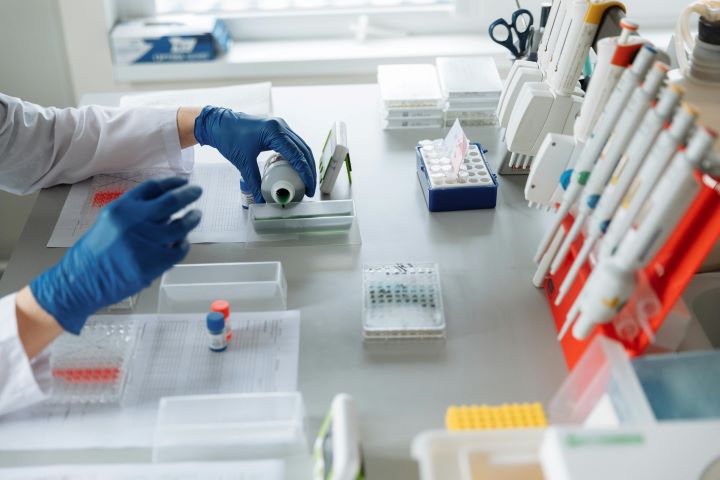Working in clinical research often means dealing with uncertainty, especially during Phase I clinical trials. This is the very first stage where a new drug or treatment is tested on humans. The goal is to check how safe the drug is how it behaves in the body, and what side effects it might cause. Anyone taking a clinical research course quickly learns that this early phase is full of challenges, both scientific and practical.
One of the biggest hurdles is finding people who are willing to take part in these trials. In Phase I, most of the participants are healthy volunteers. They are not being treated for any illness, which makes their decision to join even more sensitive. Convincing someone to take a new, untested drug just to see how it works is not easy. Many are understandably cautious and some are just unaware of how important their role is in the development of new medicine.
Clear communication can help here. People need to know why these trials matter, what they involve and how they are protected during the process. When researchers speak in everyday language and explain things honestly, trust starts to build. Volunteers also deserve fair compensation not as a reward, but as a recognition of their time and involvement.
Then comes the issue of safety. In Phase I, safety is everything. Because it is the first time the drug is used in people, there is always a chance of something unexpected happening. Even if all the preclinical lab tests looked fine, human reactions can still surprise us. That is why these studies are usually done in special clinical units where doctors and nurses can keep a close eye on participants especially during the first few hours after taking the drug.
Planning and preparedness are crucial here. Medical teams need to monitor volunteers around the clock, especially during the early stages of the study. Starting with a very low dose and increasing it gradually is a common approach, which helps reduce risk.
Another difficulty is cost. Phase I trials are expensive. You need trained professionals, medical equipment, secured clinical spaces and strict monitoring. For smaller pharmaceutical companies or research organizations, this can be a real struggle. Good budgeting, early planning and smart use of resources can help. Professionals who have undergone proper clinical research training often know how to manage limited funds better, without cutting corners on safety or quality.
Data collection is another pressure point. In these trials, researchers are not just looking for side effects. They are also studying how the drug is absorbed, processed and eliminated by the body. The tiniest error in recording data can affect the study results. Reliable tools, trained staff and careful double checking are needed to make sure everything is accurate. Mistakes at this stage can mean having to repeat parts of the trial, which only adds more time and cost.
Regulations also play a big part. There are strict rules from health authorities that researchers have to follow rules about safety, privacy, ethics and reporting. These are not just box ticking exercises. They exist to protect participants and maintain public trust in medical research. But keeping up with all these requirements takes time and knowledge. That is where support from a good clinical research institute can make a real difference. These institutes train researchers to handle all the necessary paperwork and approvals properly and guide them through the complex legal landscape.
Timelines are another challenge. Even with the best planning, things often take longer than expected. Sometimes the lab equipment breaks down or volunteers drop out, or the data takes longer to analyze. Delays like this are common and can be very frustrating for everyone involved. That is why it is important to build some flexibility into the timeline from the beginning. A good project manager can make a big difference by keeping things on track and adjusting plans when needed.
Also, it is worth pointing out that a trial is rarely run by just one person or even one team. There are doctors, researchers, coordinators, lab technicians and sponsors involved. If they are not all on the same page, miscommunication can easily lead to mistakes. Having regular meetings, shared updates and clearly defined roles helps avoid confusion. Good teamwork often makes or breaks the success of a trial.
One more thing that is sometimes overlooked is the ethical side. Just because volunteers are healthy and agree to take part does not mean the responsibility ends there. Consent needs to be fully informed and participants must understand exactly what they are getting into. Language barriers, pressure or vague explanations can lead to people signing up without really knowing the risks. That is never acceptable. Researchers need to take the time to explain things clearly, answer questions and make sure everyone is truly comfortable with their decision to join.
Finally, there is the issue of uncertainty. Since this is the very first time the drug is being tested in people, no one knows exactly what to expect. That uncertainty can be stressful for the research team and for the volunteers. To manage this, it is important to use everything we already know from preclinical studies. Detailed planning, expert advice and cautious steps help reduce risks, even when the future is not fully clear.
In the end, Phase I trials are where medical progress begins. They come with many challenges, but also with great responsibility and reward. Overcoming the obstacles takes careful planning, clear communication and a skilled team. For those building a career in this field, having a strong foundation whether from a clinical research course, hands-on clinical research training or support from a reputable clinical research institute makes it much easier to face those challenges with confidence. When done right, Phase I trials open the door to treatments that can save lives.







